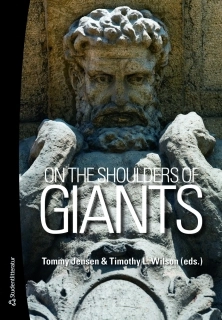

On the shoulders of giantsUpplaga 1
- Upplaga: 1a upplagan
- Utgiven: 2011
- ISBN: 9789144067384
- Sidor: 284 st
- Förlag: Studentlitteratur
- Format: Häftad
- Språk: Engelska
Om boken
Åtkomstkoder och digitalt tilläggsmaterial garanteras inte med begagnade böcker
Mer om On the shoulders of giants (2011)
I april 2011 släpptes boken On the shoulders of giants skriven av Johan Sandström, Daniel Ericsson, Markus Kallifatides, Rolf A. Lundin, Alexander Styhre, Alf Rehn, Hervé Corvellec, Marcus Lindahl, Barbara Czarniawska, Ulla Eriksson-Zetterquist, Anna Wahl, Charlotte Holgersson, Monika Kostera, Ulla Johansson, Karin Holmblad Brunsson, Elisabeth Sundin, Markus Hällgren, Jill Woodilla. Det är den 1a upplagan av kursboken. Den är skriven på engelska och består av 284 sidor djupgående information om ekonomi. Förlaget bakom boken är Studentlitteratur som har sitt säte i Lund.
Köp boken On the shoulders of giants på Studentapan och spara pengar.
Tillhör kategorierna
Referera till On the shoulders of giants (Upplaga 1)
Harvard
Oxford
APA
Vancouver



















